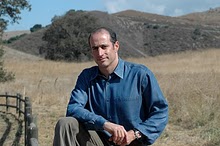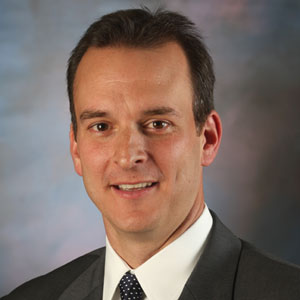PEDs: The athlete’s attorney

Howard Jacobs is a sports lawyer, probably the foremost attorney defending clients against charges stemming from positive anti-doping tests. Jacobs wins some, he loses some, but his client list of athletes who've faced disciplinary action—which numbers about 75—know Jacobs is a skilled advocate. Imagine a positive drug test returned by a famous athlete over the past decade. Chances are Jacobs was that athlete's lawyer.
Howard Jacobs is also a triathlete, I've known him for close to 15 years, and I've interviewed him in the context of cases he's tried while representing federations against athletes—in the distant past!—and in recent years, where the reverse has been the case. Because Slowtwitchers have had an opportunity to hear from USADA's chief executive this week, as well as the anti-doping director for WTC, it might be instructive to know what the process looks like from the other side: from the athlete's side, once an adverse finding is returned.
SLOWTWITCH: Age-group drug testing. I have some specific questions but before we get started give me a sense of where you personally stand on the subject.
HOWARD JACOBS: In general, my biggest question, both from what I do professionally, and as an age-group triathlete myself, I wonder where the clamor is for this type of testing? Second, where's the money coming from? Unless USADA or WTC or USAT has a grant, maybe from a private donor for this specifically, you must assume that every single test for an age-grouper is a test they can't do for an elite.
SLOWTWITCH: Still, when we poll on this question, 80 percent of our readers want age-group testing. Isn't USA Triathlon in step with what it's membership is asking for?
HOWARD JACOBS: I'd be curious as to the rationale. If I race as an age-grouper, and somebody beats me who is doping, honestly I don't care. I'm not racing as a pro, I've never taken a PED, I don't take a single supplement, not even a vitamin. To me, I race to see how far I can push myself, that's the satisfaction.
SLOWTWITCH: Let's get down to the business end of this—the mechanics. And I ask this so that drug-takers might understand the risk they're taking, and so that the innocent among us understand the gravity of an inadvertent positive. Let's say an age-grouper gets popped. He's a Sunday school teacher, airline pilot, cop, fireman, he's a high school teacher or coach, he's a judge, he's a district attorney, he's a triathlon federation or a USADA employee, an editor of a trathon magazine: Is it in your opinion, or do you have experience that leads you to believe, that he'll need to mount a defense in order to protect his reputation and maybe his job?
HOWARD JACOBS: I think so, because, let's say—and the only reason I use the supplement contamination example is because I've seen it so many times—USADA says they're going to suspend you for 2 years. By the way, it may be even more because they have a provision now called aggravating circumstances, whereby they can ask for more than 2 years. The 75 athletes I've represented are all professional athletes, for any one of them who got suspended, if you Google their names the first thing that comes up is their suspension. The burden, if you test positive, all they [USADA] have to do is come in and dump the lab documents on the arbitrator. The burden then shifts to the athlete. The athlete must prove where the contamination came from.
SLOWTWITCH: Give us numbers here. In truth, when an adverse finding is returned, in your opinion and experience, what's typical?
HOWARD JACOBS: About two-thirds of the cases I've handled stemmed from inadvertent mistakes by the athlete or by somebody: tainted supplements; or not filling out the paperwork properly. A fourth to a third of the cases with which I've dealt were intentional, or, no good explanation could be provided by the athlete. By and large, if you had the money and the desire to cheat, you're less likely to get caught than if you try to play by the rules.
SLOWTWITCH: I'll ask about the cost in a minute. But first, what does the defense look like? Take me through the process, and the timeline.
HOWARD JACOBS: If it's with USADA, after a positive test you get notified. You have an opportunity to accept the sanction, or the right to have the B sample tested. That process might take a couple of weeks. You can pay someone to attend the testing of the B sample if you want. You get a letter, the B confirms the A. "We're going to send the case to our Independent Doping Review Board," the letter says, sort of like their grand jury, and 99 percent of the time they find in favor of the positive test. You then get a letter confirming this, and—if you choose to fight—the entire arbitration takes about 4 months. In the U.S., after the first arbitration, if either side is unhappy with the result, they can appeal to the Court of Arbitration for Sport. That's a de novo hearing, which means they look at the case all over again.
SLOWTWITCH: What does a proper defense cost? There are at least two entire court cases if any side appeals—which is likely—there's legal fees, travel fees, expert witness fees, what are we looking at?
HOWARD JACOBS: Expert fees can be a couple of thousand dollars up to several tens of thousands. Kind of the same with legal fees. It's never going to be less than 10 or 15 grand to go to an arbitration case, unless you get some sort of pro bono defense, such as sports clinics, which are law students overseen by a professor.
SLOWTWITCH: So, again, not to scare anybody unduly—or maybe to scare them if they're now taking or considering taking performance enhancing drugs and competing—what's the human cost exclusive of the finances of defense, and the inability to compete in your sport of choice, or any sport among the 45 under the Olympic umbrella?
HOWARD JACOBS: There certainly could be a human cost, every situation is different, but, there are athletes I've represented who were track and cross-country coaches, who lost their jobs over it, usually due to an uproar in a community: "How can you let these people coach our kids?" I can imagine this might be the case in general with a schoolteacher. If you're a USAT coach, or any kind of coach, I would imagine it would be a problem keeping your certification.
SLOWTWITCH: On the bright side, Howard, age-group testing might represent a whole new revenue stream for you!


